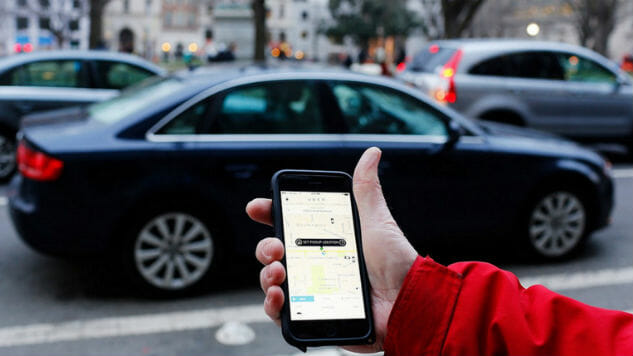It’s Really Sad That We Need a Women-Only Rideshare in 2016, But We Do
Photo courtesy of Flickr user Mark Warner
This fall, a new ride share company will be joining the competitive market with plans to offer women a safer riding experience across the United States. SafeHer, a Boston-based ridesharing experience solely for women wants to offer a service that puts safety first. The company proposes using security measures such a government standard background checks, facial recognition technology, and a customer service hotline for riders and drivers.
The company was started by former Uber driver, Michael Pelletz, who says his experience driving a passenger who almost overdosed in the back of his car led him to wonder, “what if that had been my wife, and what if the person driving didn’t do what I did, which was find a police officer and get him an ambulance.”
Pelletz is referencing multiple reports from both Uber and Lyft passengers who have accused drivers of rape, assault, and kidnapping. According to data obtained by Buzzfeed, between December 2012 and August 2015 Uber received five claims of rape and an estimated 170 claims of sexual assault. There could be hundreds to thousands more, not to mention, there are Uber and Lyft riders currently being accused for hitting and killing pedestrians.
As more stories from female victims come to light, Pelletz and his wife, Kelly (who serves as the company’s president) are determined to bring SafeHer to market. But, the announcement of a women-only ride sharing service has sparked conversations, posing the question: do we really need an all-women rideshare in 2016?
“It’s sad that we have to do this, but the fact of the matter is that there is a need,” says Pelletz. “I believe there is inequality for women, and Uber and Lyft don’t follow our lead in making safety and security a top concern for women.”
But do we really need to go as far as creating an app where only women can drive and ride? My first thought was no, we don’t and I hate the idea of needing to have one. There are many people who drive for both Lyft and Uber that are good people trying to make a living. We can’t just group all drivers into a stereotype and assume it will always be unsafe to take an Uber or Lyft when, of course, that’s not true.
However, once I started asking women about this, I learned the problem goes deeper. First, there’s the fact that some people apparently use Uber as a hookup app, similar to Tinder, and, well, you get the idea. Secondly, many women have reported feeling uncomfortable when a driver makes inappropriate comments. What are “inappropriate comments?” Here is a list of some of the comments I’ve heard (and have personally experienced myself) that male Uber and Lyft drivers have said to passengers:
“You should change your profile photo, it doesn’t do you justice. You are gorgeous.”
“Wow, you smell really good.”
“I’m not sure what your situation is but I’m single.”
“So, do you live at the location we’re going to? And do you have any roommates?”
-

-

-

-

-

-

-

-

-

-

-

-

-

-

-

-

-

-

-

-

-

-

-

-

-

-

-

-

-

-

-

-

-

-

-

-

-

-

-

-








































